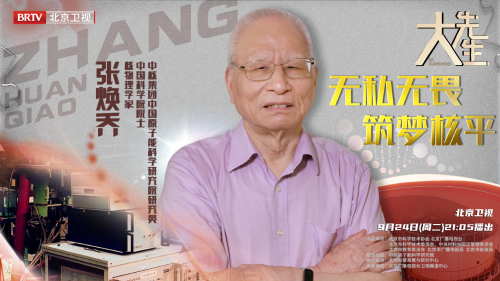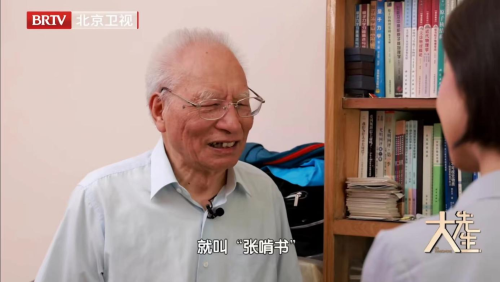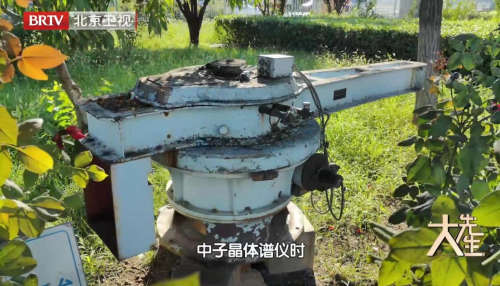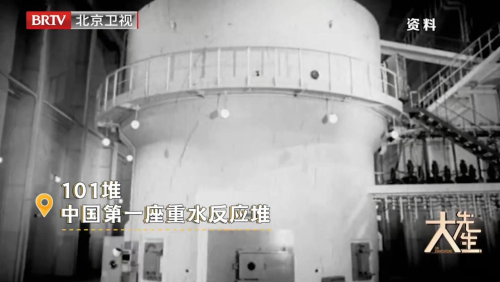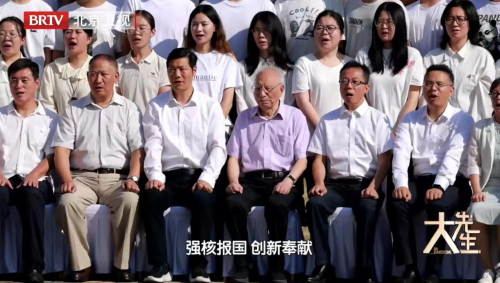Editor's Notes:
Season 3 of the educational science program "Mr. Science" has started to air on Beijing Radio and Television Station (BRTV) every Tuesday at 21:05 since July 30, 2024. Each episode features a prominent Chinese scientist who imparts wisdom and experiences to a group of university and middle school students known as the "Future Team," fostering an engaging learning environment. Here are the stories of these distinguished scientists.
Zhang Huanqiao stands as a towering figure in the realm of nuclear physics, renowned for his pivotal contributions to China's nuclear industry and his influential role as a mentor to countless aspiring scientists. His career commenced during a transformative period for Chinese nuclear science, marked by the construction of the nation's first heavy water reactor and cyclotron in 1956. At that time, Zhang was a young scientist entrusted with the task of developing a neutron crystal spectrometer, an essential instrument for conducting research using reactor-generated neutrons.
Despite the scarcity of resources and challenging conditions, Zhang and his colleagues embarked on a journey of learning and experimentation. Their relentless efforts culminated in the successful assembly and testing of the spectrometer, overcoming numerous technical hurdles along the way. Zhang's innovative approach to enhancing the precision of the spectrometer, by adjusting the thickness of steel belts, elevated the instrument's accuracy to match the leading technology of the time.
Zhang's passion for science was ignited during his middle school years, fueled by a keen interest in reading scientific literature. He studied physics at Wuhan University, as nuclear physics was not yet a formal field of study in China at the time. His determination to learn led him to self-study, including tackling a Russian book on neutrons, despite language barriers and a lack of prior knowledge. This self-directed learning laid a strong foundation for his future endeavors in nuclear physics.
In 1955, Zhang's academic excellence earned him a transfer to Peking University, where he specialized in nuclear physics. Upon graduation, he joined the Institute of Atomic Energy, contributing to China's nuclear weapons development.
Throughout his career, Zhang has shown an unwavering commitment to nuclear physics, pioneering research in areas such as heavy ion fusion-fission reactions and superheavy element synthesis. His work has not only enriched the theoretical foundations of international nuclear physics but also played a critical role in advancing China's nuclear capabilities.
Despite being over 80 years old, Zhang’s passion for scientific research remains undiminished. He regularly visits China Institute of Atomic Energy to work alongside young scientists, exploring the mysteries of nuclear science.
Zhang's influence extends beyond his scientific achievements. During a recent opening ceremony of the Graduate School of Nuclear Power Institute of China, he addressed the new students, emphasizing the importance and urgency of cultivating talent in the nuclear industry. He encouraged them to carry forward the spirit of "strengthening the nation through nuclear technology and innovation" and to actively contribute to China's nuclear industry. As a mentor, he has guided numerous students and young scientists, instilling in them a passion for research and a commitment to excellence. His warm and encouraging demeanor has made him a beloved figure among his peers and students alike.
Zhang Huanqiao’s contributions to nuclear physics have left an indelible mark on the field, and his role as a mentor has inspired countless individuals to pursue their own paths in science. Zhang's journey is a shining example of the impact one individual can have on the advancement of knowledge and the betterment of society.
